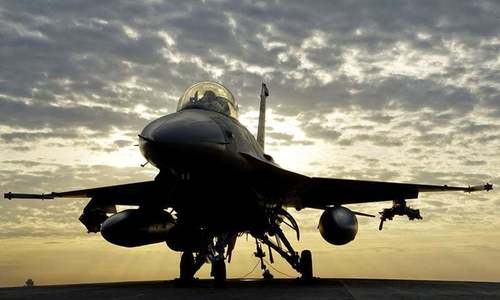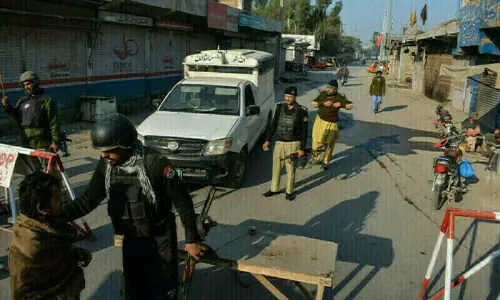The Foreign Office (FO) on Thursday warned that arms deals between Washington and New Delhi could potentially destabilise the region as India is responsible for carrying out subversive activities in Pakistan through Afghanistan.
FO Spokesman Nafees Zakaria during a weekly press briefing claimed that the statements of Indian spy Kulbhushan Jadhav, former Tehreek-i-Taliban Pakistan (TTP) Spokesman Ehsanullah Ehsan, and former United States (US) defence secretary Chuck Hagel proved that this was the case.
In 2011, Hagel claimed that India had financed anti-state elements in Pakistan and was using Afghanistan to cause trouble in the border areas.
Jadhav and Ehsan in confessional statements aired by the Inter-Services Public Relations had said that India was using Afghan soil to plan and carry out attacks in Pakistan.
Explore: Confessions of former TTP spokesman, Indian spy have 'unveiled India's nefarious designs,' says FO
Ehsan alleged that Afghan and Indian intelligence agencies supported and financed the TTP and directed attacks inside Pakistan, whereas Jadhav ─ who confessed to being a Research and Analysis Wing agent ─ said India had been fomenting unrest in Karachi and Balochistan
Zakaria asserted that Pakistan was supportive of measures that would establish stability in Afghanistan.
The FO statement comes days after Washington underlined a desire to sell nuclear components to India and reiterated its call for India to play a greater role in establishing peace in the South Asian region in the wake of America's new Afghan and South Asia policy which took a harder line on Pakistan than in the past.
The FO rubbished the notion that India could take on any such role. "India has never been serious about regional peace. It has stopped dialogue on important matters at the last minute in the past," Zakaria asserted.
Read more: 'Business as usual with Pakistan now over,' warns US National Security Council spokesman
Zakaria also touched upon Foreign Minister Khawaja Asif's tour of regional allies where he held consultations with China, Iran and Turkey on Washington's South Asia policy.
"China, Iran and Turkey have accepted that peace cannot be established in Afghanistan through a blame game," the FO spokesperson maintained.
The spokesperson confirmed that Asif would meet with his Afghan counterpart on the sidelines of the upcoming United Nations General Assembly session.


































